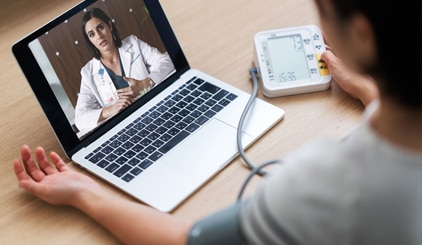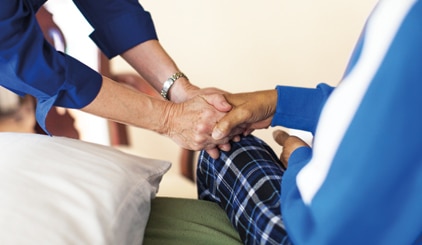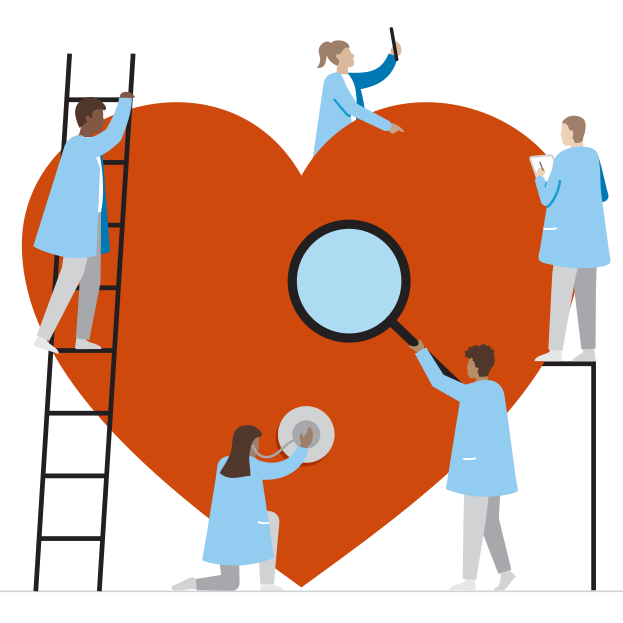Cardiac rehabilitation programs can be challenging to complete. That’s why we developed a virtual cardiac rehab program — to make your recovery more comfortable and convenient for you.
Our home-based program, available for those who qualify, uses the latest technology to help you and your care team manage your health. A smartwatch collects your activity data, which is automatically uploaded to your electronic health record. Your care team uses this information to track your progress and give you advice.
In our pilot study, 87% of participants completed the program, compared to about half on average. And fewer than 2% of participants in our study had to return to the hospital — well below the national average of 10% to 15%.1













